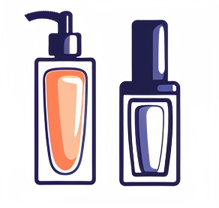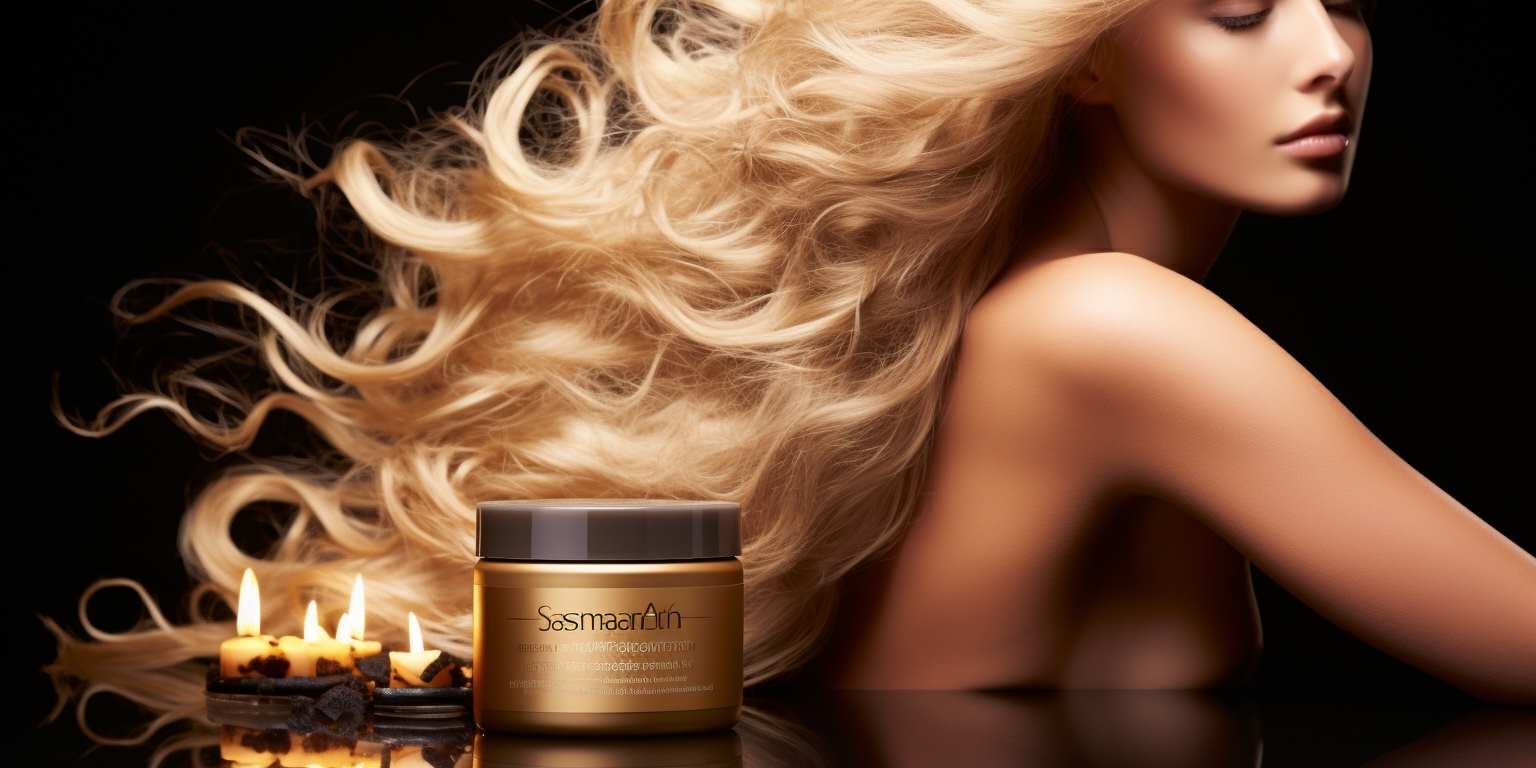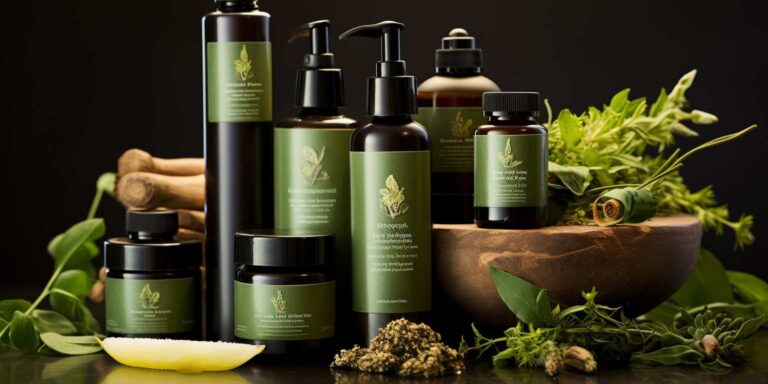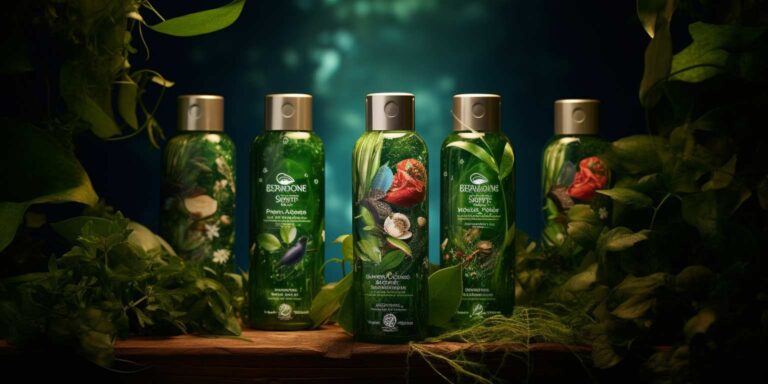Finding relief with moisturizing shampoo for dry hair
Firstly, let’s delve into what causes dryness in the first place. Dry hair occurs when the scalp doesn’t produce enough natural oils to keep the hair adequately moisturized. This can be due to a variety of factors, including overwashing, environmental conditions, and chemical damage from hair treatments.
Enter moisturizing shampoo, the hero in this tale of woe. Unlike regular shampoos, which can strip the hair of its natural oils, moisturizing shampoo works to hydrate and replenish moisture levels in the hair shaft.
One of the key ingredients to look for in a moisturizing shampoo for dry hair is hyaluronic acid. Yes, the same stuff that’s hailed for its skin-plumping abilities works wonders for thirsty strands too. Hyaluronic acid acts as a humectant, drawing moisture from the air and locking it into the hair.
Another powerhouse ingredient to keep an eye out for is argan oil. Rich in vitamin E and essential fatty acids, argan oil is like a tall glass of water for parched hair. It nourishes and strengthens the hair shaft, leaving it softer, smoother, and more manageable.
| Key Ingredients | Benefits |
|---|---|
| Hyaluronic Acid | Hydrates and locks in moisture |
| Argan Oil | Nourishes and strengthens |
But the benefits don’t stop there. Moisturizing shampoo often contains gentler cleansing agents compared to their traditional counterparts, making them ideal for those with dry or sensitive scalps.
When it comes to using moisturizing shampoo for dry hair, less is more. Aim to shampoo no more than 2-3 times a week to avoid stripping the hair of its natural oils. And always follow up with a hydrating conditioner to seal in moisture and keep your locks looking luscious.
Deep diving into intensive hydration hair cleanser
In the realm of hair care, intensive hydration hair cleansers have emerged as a game-changer, offering a deeply nourishing solution for parched locks. These specialized formulas go beyond traditional shampoos, infusing moisture into every strand and revitalizing even the driest of hair.
What sets an intensive hydration hair cleanser apart is its ability to cleanse while replenishing moisture, making it ideal for those with dry, damaged, or curly hair types. Unlike harsh sulfates found in many conventional shampoos, these cleansers often utilize gentler surfactants derived from natural sources, minimizing stripping and preserving the hair’s natural oils.
One key ingredient found in many intensive hydration hair cleansers is hyaluronic acid. Renowned for its humectant properties, hyaluronic acid attracts and retains moisture, helping to plump the hair shaft and improve elasticity. This results in hair that feels soft, supple, and more manageable with each use.
Another star ingredient commonly found in these formulations is coconut oil. Rich in fatty acids and vitamins, coconut oil penetrates deep into the hair shaft, nourishing from within and providing a protective barrier against environmental stressors. This helps to prevent breakage and split ends, promoting overall hair health.
| Key Benefits of Intensive Hydration Hair Cleansers: |
|---|
| 1. Deep Moisturization: Infuses moisture into every strand for hydrated, luscious locks. |
| 2. Gentle Cleansing: Removes impurities without stripping natural oils, ideal for dry or damaged hair. |
| 3. Improved Manageability: Softens and detangles hair, making it easier to style. |
| 4. Enhanced Elasticity: Strengthens hair and reduces breakage for healthier-looking locks. |
For those seeking an intensive hydration hair cleanser, it’s essential to look for formulations free from harsh chemicals such as sulfates, parabens, and silicones. Opting for clean, natural ingredients ensures that you’re giving your hair the best possible care without compromising on effectiveness.
The road to recovery with dry hair moisture recovery shampoo
Embark on the journey to rejuvenate your hair with Dry Hair Moisture Recovery Shampoo. Say goodbye to brittle, lifeless locks and hello to vibrant, hydrated hair that shines with vitality.
This revolutionary shampoo is specially formulated to revitalize dry and damaged hair, providing intense hydration from root to tip. Infused with moisture-locking ingredients and nourishing botanicals, it works wonders on even the most parched strands.
What sets Dry Hair Moisture Recovery Shampoo apart is its unique blend of hydrating oils and proteins that penetrate deep into the hair shaft, restoring moisture levels and strengthening from within. Each wash leaves your hair feeling soft, silky, and manageable.
| Key Benefits: | Ingredients: |
|---|---|
|
|
Experience the transformation as Dry Hair Moisture Recovery Shampoo replenishes your hair’s natural moisture barrier, leaving it looking and feeling healthier than ever before. Say hello to hydrated, radiant locks with every wash.
Essential ingredients for moisturizing dry hair
Moisturizing dry hair requires a careful selection of essential ingredients to effectively nourish and hydrate each strand, restoring its natural vitality and shine. Understanding these key components can empower you to choose the right products and develop a personalized hair care routine.
1. Hyaluronic Acid: This powerhouse ingredient isn’t just for skincare; it’s also a game-changer for hair hydration. Hyaluronic acid attracts and retains moisture, plumping up each strand from within and leaving your hair softer and more manageable.
2. Shea Butter: Rich in vitamins and fatty acids, shea butter is a natural emollient that seals in moisture and nourishes the hair shaft. It’s particularly beneficial for dry, brittle hair, providing deep hydration without weighing it down.
3. Coconut Oil: A staple in many hair care routines, coconut oil penetrates the hair shaft to moisturize and strengthen from the inside out. Its unique composition allows it to reduce protein loss and prevent damage, making it ideal for repairing dry, damaged hair.
4. Argan Oil: Known as “liquid gold,” argan oil is prized for its ability to smooth frizz and add a luxurious shine to dull, parched locks. Packed with antioxidants and essential fatty acids, it nourishes the scalp and promotes healthy hair growth.
5. Aloe Vera: For a soothing and hydrating boost, look no further than aloe vera. Its gel-like consistency moisturizes the hair without leaving it greasy, while its anti-inflammatory properties can help alleviate scalp irritation.
6. Glycerin: A humectant that draws moisture from the air into the hair shaft, glycerin helps maintain optimal hydration levels and prevents dryness and breakage. It’s a must-have ingredient for combating dry, thirsty hair.
7. Protein: While moisture is essential for dry hair, protein is equally important for strengthening and repairing damaged strands. Look for ingredients like hydrolyzed keratin or wheat protein to fortify the hair and prevent breakage.
The role of moisturizing shampoo in hair health
The pivotal role of moisturizing shampoo in maintaining hair health cannot be overstated. By infusing hair with essential hydration, these shampoos combat dryness, a common culprit behind a myriad of hair woes such as brittleness, breakage, and lackluster appearance. The effectiveness of moisturizing shampoos hinges on their formulation, which typically includes key ingredients like humectants, emollients, and proteins. Humectants, such as glycerin and hyaluronic acid, draw moisture from the environment into the hair shaft, while emollients like oils and silicones seal this moisture in, smoothing the hair cuticle and enhancing shine. Proteins, on the other hand, provide structural repair by filling in damaged areas of the hair shaft.
Another aspect worth noting is the role of pH balance in moisturizing shampoos. A shampoo’s pH level can significantly impact hair’s health and appearance. Ideally, a moisturizing shampoo should have a pH that closely matches that of the scalp and hair, which is typically between 4.5 and 5.5. This balance helps to maintain the scalp’s natural barrier, preventing moisture loss and protecting against irritants that could lead to dryness and inflammation.
Choosing the right moisturizing shampoo involves considering hair type and specific needs. For instance, individuals with curly or coily hair types may benefit more from shampoos with higher oil content, while those with fine hair might prefer formulas that are lightweight yet hydrating. Furthermore, the frequency of shampooing plays a crucial role in hair health. Over-washing can strip hair of its natural oils, leading to increased dryness and vulnerability to damage. Conversely, using a moisturizing shampoo can help to replenish these oils, promoting a healthier scalp and hair.
| Ingredient | Benefit |
|---|---|
| Humectants | Attract moisture from the environment |
| Emollients | Seal in moisture, smooth hair cuticle |
| Proteins | Repair hair structure |
Moreover, the integration of natural ingredients like aloe vera, argan oil, and shea butter into moisturizing shampoos has gained popularity. These components not only offer deep hydration but also come with additional benefits such as antioxidant protection, scalp nourishment, and enhanced hair elasticity. This shift towards natural and sustainable ingredients reflects a growing consumer awareness and demand for products that are not only effective but also environmentally friendly and free from harmful chemicals.
Tips for maintaining moisture in dry hair
Tips for maintaining moisture in dry hair
Dry hair can be a frustrating issue to deal with, but with the right care and attention, you can keep your locks looking luscious and hydrated. Here are some tips to help you maintain moisture in dry hair:
| Tip | Description |
|---|---|
| 1. Use a moisturizing shampoo and conditioner | Look for products specifically designed to hydrate dry hair. Ingredients like argan oil, coconut oil, and shea butter can work wonders in restoring moisture. |
| 2. Limit washing frequency | Washing your hair too often can strip it of its natural oils, leading to increased dryness. Aim to wash your hair 2-3 times a week rather than daily. |
| 3. Use lukewarm water | Hot water can further dry out your hair and scalp. Instead, opt for lukewarm water when shampooing and conditioning to prevent excessive moisture loss. |
| 4. Deep condition regularly | Invest in a hydrating hair mask or deep conditioning treatment to provide intense moisture to your hair. Aim to do this at least once a week for best results. |
| 5. Protect your hair from heat | Excessive heat styling can exacerbate dryness and cause damage to your hair. Use heat protectant sprays before using hot tools and try to minimize heat styling as much as possible. |
| 6. Trim regularly | Regular trims can help get rid of split ends and prevent further damage, which can contribute to dryness. Aim to get a trim every 6-8 weeks to keep your hair healthy. |
| 7. Protect your hair while sleeping | Sleeping on a satin or silk pillowcase can help prevent moisture loss and reduce friction, which can cause breakage and damage to dry hair. |
Customizing your hair care routine for dryness relief
In the quest for luscious locks, combating dryness is a common challenge many individuals face. Dry hair can feel brittle, lackluster, and prone to breakage. However, fear not, as there are numerous strategies to customize your hair care routine for effective dryness relief.
Understanding the Causes: Before diving into solutions, it’s crucial to comprehend what causes dryness in the first place. Factors such as overwashing, excessive heat styling, environmental conditions, and even genetics can contribute to parched strands. Identifying the root cause enables you to tailor your routine accordingly.
Gentle Cleansing: Opt for mild, sulfate-free shampoos that won’t strip your hair of its natural oils. Consider co-washing with a cleansing conditioner or simply rinsing with water between washes to maintain hydration.
Hydration is Key: Incorporate hydrating hair masks enriched with ingredients like argan oil, coconut oil, or shea butter into your weekly routine. These treatments penetrate the hair shaft, replenishing moisture and restoring suppleness.
Conditioning Ritual: Follow up every wash with a rich, moisturizing conditioner to seal the cuticle and lock in hydration. For added nourishment, consider incorporating a leave-in conditioner or hair oil to provide ongoing moisture throughout the day.
Temperature Control: Limit the use of heat styling tools, such as flat irons and curling wands, as they can further deplete moisture levels. When styling, always use a heat protectant spray to shield your strands from damage.
Protective Styling: Embrace protective hairstyles like braids, twists, or buns to minimize exposure to harsh environmental elements. Additionally, investing in a silk or satin pillowcase can help prevent overnight moisture loss.
Regular Trims: Schedule regular trims every 6-8 weeks to eliminate split ends and promote healthy hair growth. Removing damaged ends prevents further breakage, keeping your mane looking vibrant and hydrated.
Dietary Considerations: Remember, healthy hair starts from within. Ensure you’re consuming a balanced diet rich in omega-3 fatty acids, vitamins A, C, and E, as well as protein to support strong, nourished hair.







